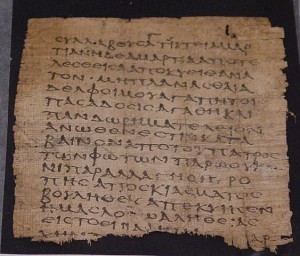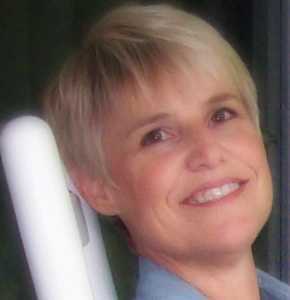Cathy Bryant's Blog: CatBryant.com ~ Journey Blog, page 13
November 30, 2015
SPOTLIGHT HERE: Wonderful Book Tour for PIECES ON EARTH
 Since my recent plea for blogger buddies, many wonderful folks have stepped up the plate to help me organize a wonderful book tour for PIECES ON EARTH. (I will be adding to this post as more stops are added, so please bookmark the page and visit often!)
Since my recent plea for blogger buddies, many wonderful folks have stepped up the plate to help me organize a wonderful book tour for PIECES ON EARTH. (I will be adding to this post as more stops are added, so please bookmark the page and visit often!)
I created this post–not just so I can keep up with all the virtual book tour stops–but also so you can visit the posts, many of which will have an ebook giveaway of the new novella.
Please help me express my gratitude to these amazing blogger buddies by dropping by the post to leave a comment. It’s a fun and easy way to support these folks, who give up their free time to help spread the word about Christian fiction and Christian fiction authors. Thank you!
Book Tour: PIECES ON EARTH
November 15
Cat at Cat’s Country Place: http://CatWest.blogspot.com
November 18
Kathryn at Shelf Full of Books: http://kathrynsshelffullofbooks.blogspot.com/
November 24
Michelle at New Horizon Reviews: http://newhorizonreviews.blogspot.com/2015/11/author-interview-cathy-bryant.html (eBook Giveaway: http://newhorizonreviews.blogspot.com/2015/11/giveaway-pieces-on-earth-ebook.html)
Susan at New Every Morning: http://hismorningglory.blogspot.com/2015/11/pieces-on-earth-by-cathy-bryant-my.html
November 25
Tina at Mommynificent: http://mommynificent.com/2015/11/25/book-launch-review-and-giveaway-of-pieces-on-earth-a-christmas-novella-by-cathy-bryant/
November 30
Susan at The Book Bag: http://susan-thebookbag.blogspot.com/2015/11/book-spotlight-pieces-on-earth-by-cathy.html
December 2
Russell at Grace and Faith 4 U: http://graceandfaith4u.com/
December 7
Jasmine at MontanaMade Tell Tale Book Reviews: http://montanamade.weebly.com/tell-tale-book-reviews
December 8
Sandra at The Musings of a Book Addict: http://www.themusingsofabookaddict.com/
December 9
Freda at Freda’s Voice: http://www.fredasvoice.com/
December 10
Pam at Daysong Reflections: http://www.daysongreflections.com/
December 18
Amy at My Seasons of Opportunity: http://myseasonsofopportunities.blogspot.com/
December 23
Sarah at Sarah Ruut: http://sarahruut.com/
 Please share the book tour on Facebook, Twitter, and Pinterest by hovering your cursor over this photo and clicking the appropriate share button. Thank you! :)
Please share the book tour on Facebook, Twitter, and Pinterest by hovering your cursor over this photo and clicking the appropriate share button. Thank you! :)Did you miss our Black Friday-Cyber Mondays steals? You can find them here, but hurry!
Book Tour: Dates Still To Be Scheduled
Anne at Stuff and Nonsense: http://annepayne.blogspot.com/
Cheryl at Cheryl’s Christian Book Connection: http://cherylschristianbookconnection.blogspot.com/
Cheryl at The Book Connection: http://thebookconnectionccm.blogspot.com/
Nancy at Sunny Island Breezes: http://sunnyislandbreezes.com/
$200 GC #Giveaway + #BookTour for PIECES ON EARTH. See it here:
Click To Tweet
Book Tour Extras:
 Click the pic to enter the $200 Amazon Gift Card Giveaway. Concludes 12/21/2015
Click the pic to enter the $200 Amazon Gift Card Giveaway. Concludes 12/21/2015As mentioned above, I will be adding to this list in the next few weeks, so be sure to bookmark the page and visit often–especially to help support these wonderful book bloggers and increase your chances of winning a PIECES ON EARTH eBook.
And you definitely do NOT want to miss entering the giveaway for a $200 Amazon Gift Card. You can click the photo to the left to enter. The giveaway concludes on December 21, 2015.
Thanks so much for visiting the various sites listed on the book tour! (And if you have a blog and room to post about PIECES ON EARTH, please let me know. I’ll be happy to add you to the list!) 
November 28, 2015
Walk Through the WORD James 1-5

In today’s study we are going to sidetrack to the book of James since chronologically, it falls in the time frame between the events of Acts 14 and 15. So here is today’s walk through the WORD: James 1-5.
If you’ve missed our Acts study so far, you can find all the posts here:
Acts 1-3
Acts 4-6
Acts 7-8
Acts 9-10
Acts 11-12
Acts 13-14
Acts 15-16
Acts 17-18:17
Acts 18:18-19:41
Walk Through the WORD James 1-5
Background:
Author – James (the half-brother of Jesus and the leader of the church in Jerusalem)
Main Theme – Proving our faith through good works. (NOTE: We must understand from the beginning in our study of the book of James, that the author is not advocating good works as a means to gain God’s favor and entrance into His kingdom. Instead, his point is this: Those who truly belong to God will bear fruit for His kingdom through what they do. Our works are always to be done as the fruit of our salvation, not the root of our salvation. The book of James is very much the “Magna Charta” of practical Christianity.)
Passage:
Read: James 1:1-27.
Key Points:
 “Papyrus 23 James 1,15-18” by Unknown – Papyrus Oxyrhynchys 1229, designated by P23 on the list Gregory-Aland. Licensed under Public Domain via Commons.
“Papyrus 23 James 1,15-18” by Unknown – Papyrus Oxyrhynchys 1229, designated by P23 on the list Gregory-Aland. Licensed under Public Domain via Commons.{vss. 1-3} Typical to the letter-writing style of the day, James first identifies himself as a servant of God and of the Lord Jesus Christ. Then he identifies his intended audience, the twelve tribes of Israel scattered around the world. He promptly begins the body of his letter with a shocking statement: “Consider it all joy, my brethren, when you encounter various trials…” The word “consider” is an accounting term which means to evaluate. So we’re to evaluate our trials and be joyful. After all, an untested faith isn’t worth much. Notice, too, that James doesn’t say “if” you encounter trials, but “when.” The Jerusalem church, in the shadow of the Jewish temple, lived in constant threat from the power-hungry religious leaders. The church would undoubtedly face trials, and many of them. Honestly, we all do, sometimes in direct ways, and at other times indirectly. We live in enemy territory. The trials mentioned are also called temptations in different translations. It suggests an unwelcomed and unanticipated event, a difficulty or adversity. Just as the trunk of a sapling is made stronger through winds that whip it from side to side, so too, we become stronger in the face of adversity. How? We learn to persevere, or stand up under, the difficulty, which brings about a change in character. That is why we can be joyful in such times. The way we react to difficulty is a good indication of the depths of our spiritual maturity and faith.
{vss. 4-5} Allowing perseverance to finish its work in us, making us mature and complete, requires a surrendered will on our part. Perseverance is an active, triumphant fortitude that never gives up. Christ started this work in us and is faithful to complete it (Philippians 1:6). Satan and his kingdom in the world will do everything they can to make us give up on our faith, but our job is to keep on keeping on. Wisdom isn’t a human attainment, but rather the gift of God (1 Kings 3:3-14; Luke 11:9-13). It begins with fearing the Lord (Proverbs 9:10; Job 28:28; Psalm 111:10; Proverbs 1:7; Proverbs 2:1-5). In the context of this passage, wisdom carries with it a basic understanding of the true nature of life’s decisions, a realization that we need God’s wisdom. Thankfully, He doesn’t criticize or belittle us for seeking Him and His wisdom, but instead grants us a generous helping of His wisdom.
{vss. 6-8} However if we ask for God’s wisdom, we must do so in faith, and without doubting. Why? Because doubt is like tossing waves and shifting sand. It’s unstable. When we doubt, our allegiances are divided. True wisdom is being aligned only with God and fearing Him only. If we ask for the gift of God’s wisdom, which He promises to give, we must accept His answer in faith. The word “believe” in verse 6 means a full commitment of self to God and what God wants done. James clearly tells us that doubters will receive nothing from the Lord.
{vss. 9-12} Regardless of our current earthly circumstances and socio-economic status, this quickly-fleeting life ends at the same place for all of us: physical death. We’re all flowers quickly fading. In a day when a man’s worth is determined by his wealth, we need to remember that true wealth isn’t found in the abundance of our possessions (Luke 12:15), but in Christ. So all of us who belong to Jesus should rejoice in whatever circumstances in which God has placed us, because for us, this earth is not the end. We are blessed when we stand up under our trials, because once the test of this earthly life is over, we will receive the crown of life God has promised those who love Him. That is the reward of endurance.
{vss. 13-15} We must also be aware that temptation does not come from God. Because He is good, He will not ever tempt us to do evil. That process comes from within our flawed and sinful hearts. Notice the progression, because it will replay itself several times in each of our lives: Evil Desire –> Sin –> Death. So when those evil desires creep into our heart to tempt us to sin, we must squelch them immediately! Temptation is not our outward situation, but our inward condition. While it isn’t sin, yielding to it is, and it leads to death in some shape, form, or fashion.
{vss. 16-18} I find James’ admonition to not be deceived very telling. Just like Adam and Eve, we are all so capable of being deceived. And our very hearts are deceptive (Jeremiah 17:9). In sharp contrast to the tempting lies of Satan, our God gives good and perfect gifts. And He never changes! He chose to give us new life through His Word, Jesus (Romans 10:17). No gift is more good and perfect than that!
{vss. 19-21} As the book of practical Christianity it is, James gives us very wise advice: “be quick to listen, slow to speak and slow to become angry.” Sometimes I find myself, in a conversation, not truly listening, but already thinking about my reply. Oh, if I would learn to truly listen to people, and then (and only then) consider my response deliberately, praying for the Holy Spirit to guide my speech. What a difference it would make. And I love that the words “slow to become angry” are attached here. Is there anything like the words of another, to not only make us spout words in return, but to do so in anger? We need to take to heart the fact that anger never brings about the righteous life God desires for each and everyone of us. Anger is next attached to other moral filth and evil, which we are to rid ourselves of (Hebrews 12:1). The solution to all of it is to submit to God’s Word, which has the power to save us.
{vss. 22-25} The human heart is truly wicked and deceitful (Jeremiah 17:9). We’re deceived because we want to be deceived. Lies are often more palatable than truth. When we hear the Word and look into the “mirror” it provides, but don’t actually do what we hear, we are self-deceived. Jesus never called anyone to be merely a listener (Mark 1:17; Acts 1:8). We cannot be changed unless we submit to what God says through the Bible. The passage then contrasts those who deceive themselves with those that earnestly look into the Scripture and acts upon what he sees there. These people are blessed. We should never forget that God’s Word is the means of making us new (James 1:18), a means of seeing ourselves in light of what God wants (James 1:23), and our guide to human ethics (James 1:25; James 2:8). It will also be the standard for judgment (James 2:12).
{vss. 26-27} Another mark of a person who lives by God’s Word is those that control their tongue. Are there any more convicting words in the Bible than these and James 3:1-12? (Maybe I feel that way because I’m often convicted by them!)
Read: James 2:1-26.
Key Points:
{vss. 1-13} In these verses, James addresses the problem of showing partiality based on socio-economic status. In my humble estimation, I see this as huge problem in at least some of our American churches. We say we welcome those of lesser means, but do we really? How many of them are marginalized within our churches? How many of them truly feel accepted? We may “take care of them” in the sense of meeting a few physical needs, but do we “take care of them” in making them feel loved and accepted? Jesus’ life proved that our God values the poor and outcast. He chooses those who are poor to be rich in faith. In contrast, people tend to value those of wealth, when these are often the very people who oppress us and deny their need for God. We wrongly assume that people with great wealth are blessed by God, while those without aren’t. Not true. He just blesses them in different ways. If we truly keep the command to love all people as we love ourselves, we’re doing God’s Word and way. But if we demonstrate partiality based on wealth, we sin. If we want God’s mercy, we must be people of mercy. A right relationship with Him is demonstrated by our obedience to His will (Matthew 7:21; Matthew 16:24). In both James 1:25 and James 2:12, we see reference to the term “law of liberty.” This expression isn’t found in any other place in the Bible except the book of James. As believers, we live, not under compulsion from without, but under constraint from within. (Problems arise when we try to do both, as I can testify to from my own life.) In Christ, we’re bound to Him. Yet we’re also liberated from this world and to the abundant life. The “law” part of this refers to living by God’s claim to on our lives. Christians must by nature accept His cross of denying ourselves. But this very law brings our freedom.
{vss. 14-26} Faith is proved by what we do, and James spends considerable time supporting that truth. The danger comes when we try to make works our means of meriting salvation. Works are to be the fruit of our salvation, not the root. A faith without works is without power, significance, or value. James gives Old Testament examples as proof with the person of Abraham (Genesis 22:1-19) and Rahab (Joshua 2:1-21).
Read: James 3:1-17.
Key Points:
{vss. 1-6} We will one day give an account for every careless word we speak (Matthew 12:36-37), a thought that should make us stop and consider our words carefully. James compares our tongues to a horse bit, ship rudder, and a small spark–all very small objects capable of causing big results, then concludes this section by saying that our tongues are evil, with a destructive power straight from hell itself.
{vss. 7-12} James continues his “tongue” discourse, first with the thought that man is able to domesticate wild animals, but unable to tame the tongue. How can we bless God with our tongues and then turn around and curse our fellow man who is made in God’s image? James even goes so far to suggest that the destructive use of our tongues gives evidence of our soul’s condition.
{vss. 13-18} The marks of godly wisdom include humility, purity, peace, submission to God, mercy, good fruit, impartiality, and sincerity. This sincerity is in sharp contrast to the Pharisees of the day, whose hypocrisy was pointed out by Jesus. Of the rest of the qualities listed by James, peacemaking is once more touted as a positive, since it produces a harvest of righteousness (James 1:19-20). On the opposite end of the spectrum is a worldly wisdom that reveals selfish ambition and envy. James bluntly says that kind of wisdom is inspired by Satan and brings with it chaos and every evil practice.
Read: James 4:1-17.
Key Points:
{vss. 1-3} Here James preaches against the evil within humanity. We think our battle is with other people, but in all honesty our battles stem from evil within: murder, covetousness, and selfishness. Even our prayers are often motivated by greed and selfishness. Thankfully, God, in His divine wisdom, knows our motives and refuses to grant that sort of prayer.
{vss. 4-6} If the generation of James’ day was adulterous (unfaithful), how much more are we today. We forget that we can’t be friends with both God and the world, yet our behavior often reveals that our friendship with the world is stronger than our relationship with God. God is jealous for us, but He also is a God of grace. While He is an enemy of those who are proud, He bestows grace to the humble.
{vss. 7-10} Notice the strong verbs that begin each phrase in this section. These are surely actions for us to take in order to break away from our relationship with the world: submit to God; resist Satan; come near to God; wash our hands; purify our hearts; grieve, mourn, and wail; change our laughter to mourning and joy to gloom over our sin; and humble ourselves before God. Then His grace will descend to lift us up. When we’ve become a little too friendly with the world, this is the only cure. And it’s a cure we sorely need.
{vss. 11-12} In these verses, James moves from our relationship to God to our relationship with our fellow man. Surely both of these are of concern to God, since His old covenant of the Law dealt with both, and since Jesus agreed that the greatest commandment was to love both God and man. When we slander and judge others, we old ourselves up as better than both our fellow man and the Law. In that way we treat God, the Law, and our fellow man with contempt.
{vss. 13-17} The importance of these verses deals with the fact that we often make plans without stopping to consider what God wants. All of mankind is but a vapor that eventually disappears, so how can we say we will do this or that, when it is God alone who determines our steps and each breath we take? Anything less than seeking God’s plan is boasting and bragging, both evil. Tacked on to the end of this discourse is a simple verse that truly gets to the crux of the book of James. If we know to do good, but refuse to do it, we sin.
Read: James 5:1-20
Key Points:
{vss. 1-6} The discourse here is against the wealthy who oppress others to gain their wealth, who take advantage of others, and hoard wealth. But God knows and will repay. I think the indictment here stands against many Americans. Of all nations on earth, God has blessed us above and beyond. We should never think that we’ve done anything to deserve it, or that our wealth is for us alone. To whom much is given, much is expected (Luke 12:48). It is our duty and responsibility to care for our fellow human beings, both here and around the world. We will one day give an account for our stewardship of what God has given us.
{vss. 7-12} The believers in Jerusalem, who were under the leadership of the apostle James, underwent persecution in a way we find difficult. Under the shadow of the temple and the religious leaders who clung to their power with talons, believers of The Way were often shunned by their families, excommunicated from their synagogues, and even lost jobs and the means for survival. They endured suffering. Though that sort of life is difficult for us to comprehend, the day may come when we need these words from James. No matter what sort of persecution we may suffer, we are to be patient and persevere. God’s coming is near. When we are hurting, it is easy to hurt others in return, sort of a “kick the dog” mentality. We will be judged for grumbling against each other! In addition to suffering in patient endurance without grumbling, we are to be completely honest. If we say “yes,” we should mean “yes” and follow through. And the same holds true for saying “no.”
{vss. 13-20} This section on prayer is a perfect ending for such a practical guide on Christian behavior and living. Prayer is the appropriate response no matter what we’re going through–joy, sickness, confession of sin, etc. God has put us within a body of believers for our good, no matter how flawed each of us are. We are to pray for each other. James gives Elijah as an example of the power of the prayer of a righteous man. He then ends with the call for us to bring back those who are wandering from the truth.
Walk Through the WORD James 1-5
Prayerfully consider the following questions. Feel free to add to our study by sharing in the comments below.
What are your thoughts concerning faith and works? Which comes first? What is the inherent danger of works?
Have you experienced a time when you felt God’s joy in the midst of trials and tribulations?
What quality is a prerequisite to perseverance?
Where does true wisdom comes from? What part does faith play in the acquisition of godly wisdom? How would you compare God’s wisdom with earthly wisdom?
What is the progression that leads to sin? Where does it come from?
What are your thoughts on deception’s role in the sin process? Why do you think we are deceived?
If God were to rank us on a scale of 1-10 in being a Bible-doer, what would your score be? (Please don’t answer this in the comments. It’s just a way for us to give strong consideration to our ability to not just hear God’s Word, but do it.)
Why do you think James places so much emphasis on controlling our tongues?
How is the “law of liberty” so unique?
What is the connection between our relationship with God and our relationship with mankind?
Do you think James’ comments on wealth are meant to be a disapproval of wealth in general? What is the inherent danger of wealth? What are your views on money? How is our wealth as Americans a detriment?
What should be our attitude and goal when it comes to suffering persecution?
What lessons can we learn from the section in James 5 on prayer?
The post Walk Through the WORD James 1-5 appeared first on Cathy Bryant.











November 26, 2015
Look Here For Valuable Black Friday-Cyber Monday Steals
 Please share this graphic on Facebook, Twitter, and Pinterest by hovering your cursor over the photo and clicking the appropriate social media button. Thank you! :)
Please share this graphic on Facebook, Twitter, and Pinterest by hovering your cursor over the photo and clicking the appropriate social media button. Thank you! :)Don’t know about you, but I’ll probably be out on Black Friday-Cyber Monday searching for deals & steals!
In the fun and mayhem, I thought I’d add my own brand of craziness to the mix with a couple of book deals! Please share the news!
#amreading #BlackFriday #CyberMonday #Free Book Deals here:
Click To Tweet
Black Friday-Cyber Monday – Book Steal #1
 The first book up for grabs is my first Christian fiction novel in the Miller’s Creek series, TEXAS ROADS, and it’s free for Kindle and Nook! An Amazon best-seller and a 2009 American Christian Fiction Writer’s Genesis contest finalist, TEXAS ROADS is all about finding true home. Here’s the book description:
The first book up for grabs is my first Christian fiction novel in the Miller’s Creek series, TEXAS ROADS, and it’s free for Kindle and Nook! An Amazon best-seller and a 2009 American Christian Fiction Writer’s Genesis contest finalist, TEXAS ROADS is all about finding true home. Here’s the book description:
Can a cowboy turned mayor help a wealthy city girl in her quest to find home?
Dani Davis just wants a place to call home. With lovable-but-quirky town folks, quaint country charm, and loads of business potential, Miller’s Creek, Texas seems like the perfect place to start over…except for the cowboy who gives her a ride into town. She secretly finances renovations to the downtown area until malicious rumors and a devastating discovery propel her down a road she never expected to travel.
Steve Miller is determined to rescue his dying hometown. When vandals jeopardize the renovation, he can’t help but suspect Dani, whose strange behavior has become fodder for local gossips. Can Steve and Dani call a truce for a higher cause, and in the process help Dani recognize the true meaning of home?
If you enjoy Christian western romance with an inspirational message of finding true home,Texas Roads is a book you’ll love.
“…one of those stories that sticks in your heart.” ~Amazon Reviewer
PURCHASE: | Print | Kindle (free) | Nook (free) |
 Click the pic to join our happy crew and receive a free eBook of A PATH LESS TRAVELED.
Click the pic to join our happy crew and receive a free eBook of A PATH LESS TRAVELED.Black Friday-Cyber Monday Book Steal #2
 The second book up for grabs is A PATH LESS TRAVELED, the second stand-alone novel in the Miller’s Creek series. This book can be purchased on Amazon for just 99-cents, OR you can get it for free by joining almost 3,500 for our Reader’s Group Newsletter.
The second book up for grabs is A PATH LESS TRAVELED, the second stand-alone novel in the Miller’s Creek series. This book can be purchased on Amazon for just 99-cents, OR you can get it for free by joining almost 3,500 for our Reader’s Group Newsletter.
Newsletter subscribers not only get a free eBook of A PATH LESS TRAVELED, but also enjoy exclusive newsletter subscriber giveaways each month and first news of book releases. (I’m a big believer in keeping your e-mail address confidential. And you’re more than welcome to give the newsletter a try to receive your free book. If you decide don’t like our group, you can unsubscribe at any time.)
Here’s the book description for A PATH LESS TRAVELED:
A grief-stricken single mom, her traumatized little boy, and the new lawyer in town who loves them both…
Trish James is tired of being rescued. When a spooked horse claims her husband’s life, she’s determined to blaze a path for herself and her traumatized son without outside help. Unfortunately, her attempts to run her own business as an artist and wedding planner just doesn’t pay the bills. But will that mean leaving her hometown of Miller’s Creek–the place etched on her heart?
Andy Tyler has had to struggle for everything, and starting a new law practice in Miller’s Creek, Texas is no different. Though prepared for business challenges, he’s not prepared for falling in love–especially with yet another woman who will probably abandon him for her career.
Will Andy and Trish be able to fully trust in God and take a path less traveled?
If you enjoy a heart-tugging story of love the second time around, you’ll love this story.
“A story that I couldn’t put down, of grief, loss, love and new beginnings. A story that will make your heart feel good.” ~Amazon Reviewer
PURCHASE: | Print | Kindle – $0.99 | Free For Subscribers |
Black Friday-Cyber Monday – More Stuff

Here are a few more deals I thought you might want to know about:
$200 Amazon Gift Card Giveaway to celebrate the release of my new Christmas novella, PIECES ON EARTH , the story of a young mother who searches for God’s peace in life’s pieces when her husband is unexpectedly deployed just before Christmas.
Special sales and freebies throughout December, so check back often.
COMING DECEMBER 1-16, 2015 – The “12 Days of Christmas” Sweepstakes, with a new giveaway of print books and eBooks on each of the twelve days, culminating with a Kindle giveaway!
The post Look Here For Valuable Black Friday-Cyber Monday Steals appeared first on Cathy Bryant.











November 25, 2015
Walk Through the WORD Acts 18:18-19:41
 Hover your cursor over this pic to share our Bible study on Facebook, Twitter, and Pinterest. Click on the appropriate button. Thank you!
Hover your cursor over this pic to share our Bible study on Facebook, Twitter, and Pinterest. Click on the appropriate button. Thank you!Walk Through the WORD Previous Posts
Today we walk through the Word Acts 17-18:17. Join us as we walk together through the Word of God–to better know Him and make Him known, to gain strength for the journey as we grow in our faith, and to join our hearts in unity as the body of Christ.
Acts 1-3
Acts 4-6
Acts 7-8
Acts 9-10
Acts 11-12
Acts 13-14
Acts 15-16
Acts 17:18-18:41
Yesterday we followed the travels of Paul on his second missionary journey. We saw both conversions and opposition in Thessalonica, Berea, Athens, and Corinth. Today we continue with this second mission.
Walk Through the WORD Acts 18:18-19:41
Read: Acts 18:18-27
Key Points:
{vss. 18-22} Paul stayed in Corinth for a while, then left his companions (other than Priscilla and Aquila) and sailed for Syria. Before he left, he had his head shaved, which was part of the Nazirite vow process (Numbers 6:13-21). Once they reached Ephesus, Paul left Priscilla and Aquila while he went to the synagogue to once more reason with the Jews there. They asked him to stay longer, but he declined, promising to come back if it was God’s will. Concerning God’s will, there is much in the scripture that reveals God’s will: to rejoice in tribulation, to give thanks in all circumstances, to pray, etc., but there is also much about God’s will for us as individuals that requires that we seek Him in prayer. We often see God’s will as something that is hidden, but I truly believe that God will reveal it to us if we ask. For me personally, a lot of times His will for me is revealed in the doors he chooses to open and shut. And my prayer is for Him to continue to open and shut doors in my life so that His will for me will be accomplished. I also pray for wisdom and discernment, and for the eyes to see His plan, while at the same time doing all I can to stay true to His plan as revealed in His Word. Returning to our account of this part of Paul’s journey, when he landed at Caesarea, he immediately went to greet the church, then headed to Antioch, which had become command central. This concluded his second missionary journey.
{vss. 23-28} The apostle spend considerable time in Antioch, then set out on his third journey, beginning with the regions of Galatia and Phrygia, strengthening the disciples who lived there. The scene now shifts to the person of a Jew by the name of Apollos. We’re told that he had a thorough knowledge of the Scriptures and had been instructed in the way of the Lord. He also spoke with great fervor and taught about Jesus accurately. The only problem? He was only speaking about the baptism of John, and not the more recent baptism of the Spirit. I love that Priscilla and Aquila, who had sat under the teaching of Paul, were there to explain the way of God more adequately. We should never take for granted the brother and sisters the Lord allows us to come in contact with. None of us have “arrived.” There’s always something new we can learn from our spiritual family. What a blessing! Apollos wanted to go to Achaia. His fellow believers encouraged him and wrote to the believers in Ephesus to receive him. Once in Ephesus, Apollos was a great help to the other believers. This next verse says it all: “For he vigorously refuted the Jews in public debate, proving from the Scriptures that Jesus was the Christ.” Folks, we must never assume that the duty of proving the case for Christ is someone else’s responsibility. All of us, as soldiers of Christ, must stand at the ready to give a defense for the gospel.
Read: Acts 19:1-41
Key Points:
{vss. 1-7} The book of Acts once more turns its focus on Paul. On this trip to Ephesus he divinely encountered a group of disciples who knew the baptism of John but not of the Spirit. Paul let them know that John’s baptism was a baptism of repentance, which was good in the sense that it helped people realize their need for God and their need to turn back to Him. But it neglected the miraculous power of God’s Spirit. Paul laid his hands on these believers, and the Holy Spirit came on them with the signs of speaking in tongues and prophecy.
{vss. 8-10} Paul, true to his customary strategy, entered the synagogue and spoke there for three months, “arguing persuasively” about God and His kingdom. Some of the Jews refused to believe and publicly slandered the believers of The Way. Just like he did earlier in Corinth, Paul left them. There is a lesson there for us. In my dealings with others, there have come times when the people I was trying to reach with the good news became hostile and rude. I think at those times, we must continue to love them, but if they show no evidence of accepting God’s message, there comes a time for us to back away. Since he left the synagogue, Paul had to find a new place to meet. For two years Paul continued to speak in Ephesus, so that all the Jews and Greeks who lived there herd the Word of the Lord.
{vss. 11-16} Because Paul was devoted to the work of spreading the good news of Christ, God performed extraordinary miracles through him. Some Jews in the area tried using Jesus’ name to cast out demons. The demons quickly replied that they knew Jesus, but not them. The demon-possessed man over-powered them and beat them. The lesson in this passage is this: If we are totally committed to God and His purposes, He can do great things through us. On the other hand, if we use His name like a magic bullet, but have no real connection with Him, we are no match for Satan and his minions. When Jesus said to ask in His name, He never intended for us to tack it onto prayers as a magic potion. The true meaning of asking in His name, is to ask in the will and character and being of Jesus, submitting ourselves fully to what He wants.
{vss. 17-20} Whenever God’s power is manifested, it causes people to truly fear and reverence Him for who He is. It also brings about an attitude of repentance in the lives of many. In this scenario, those who practiced magic arts and sorcery were convicted to burn their valuable scrolls. This public display and testimony resulted in God’s Word spreading and growing in power. When we get our lives right with God, powerful things happen.
{vss. 21-22} Paul decided to return to Jerusalem, passing through Macedonia and Achaia, with plans to eventually visit Rome. Now that others were involved in the missionary efforts, Paul sent Timothy and Erastus to Macedonia, while he stayed a little longer in Asia.
{vss. 23-27} I, for one, am so glad the Bible reveals the opposition faced by early believers. This passage tells the story of a craftsman who made his living from creating miniature statues of the godess Artemis (Diana). With Paul and the others leading so many from goddess worship to The Way, the man’s business was starting to fall apart. He dealt with it by appealing to the civic pride of the city officials. The temple to Diana was one of the seven wonders of the ancient world, a magnificent structure with 127 columns that rose 60 ft. in the air, which stood on an area that was 425 feet long by 220 feet wide. Isn’t it telling that so many times the opposition to God and His ways are because of money? No wonder Jesus warned against it, saying: “You cannot serve both God and money, because you will love one and hate the other.” This warning holds true for us today. While money, in and of itself, isn’t evil, loving it is. When we put more trust in our bank accounts and 401Ks than God, we have a problem.
{vss. 28-41} A riot ensued from the scheming plan of the silversmith, whose business had been affected by the souls won to The Way. Two disciples, Gaius and Aristarchus, were seized and rushed to the theater. Paul wanted to go, but the other disciples feared for his life and begged him not to go. As is usually the case in a mob mentality setting, confusion and hysteria reigned. God intervened this time through the calming words of the city clerk, who warned that a riot would only cause more problems for their city.
Walk Through the WORD Acts 18:18-19:41
Prayerfully consider the following questions. Feel free to add to our study by sharing in the comments below.
What are your thoughts on knowing and doing God’s will? How do we determine the will of God?
Paul’s ministry was not only about sharing the faith, but strengthening the disciples. What can we learn from this model?
What can we learn from the example of Priscilla and Aquilla in the situation with Apollos?What might have happened had they handled the situation differently? What was the result of their mentoring in Apollos’ life and God’s kingdom?
Do you see a particular strategy unfolding in Paul’s missionary journeys? What? Do you see a uniform pattern among the disciples in dealing with those who were skeptical about Jesus
What are your thoughts on the best way to handle situations in which the people we are trying to win to Christ become obstinate and abusive?
What did you learn from the story of the seven Jews who tried to exorcise a demon in Jesus’ name?
What is your personal experience in a powerful movement of God where people repented and feared God? What was the final result of this experience?
In what ways do people serve money today? What is the best way for a believer to view and handle money?
Have you ever been part of a situation where mob mentality took over? What were the negative effects of this mob mentality? How was the situation resolved? What did you learn from the experience?
All Posts in Our Study of Acts:
Acts 1-3
Acts 4-6
Acts 7-8
Acts 9-10
Acts 11-12
Acts 13-14
Acts 15-16
Acts 17-18:17
Acts 18:18-19:41
The post Walk Through the WORD Acts 18:18-19:41 appeared first on Cathy Bryant.











Want To Make Yourself Grateful? Here’s A Valuable Lesson

Want to become more grateful? Have you–like me–sometimes realized a deficiency in this area? A valuable lesson we all can learn from is embedded in the story of Jesus and the ten lepers (Luke 17:11-19).
Most of us are familiar with the story. Ten lepers–who endured not only the painful and disgusting ravages of leprosy, but also being shunned by society–were healed by Jesus.
Wiped clean. No more sores. No more oozing flesh. No more shouting out “Unclean! Unclean!” as they traveled through populated areas.
But in spite of this miracle, only one of the ten returned to Jesus to say “thank you.”
An attitude of gratitude sometimes seems to be in short supply not only in our culture, but also in our lives. Maybe it’s because we sprint through life at hair-on-fire speeds, only slowing long enough to catch a few zzz’s before we hit it again. Maybe it’s because we’re so easily distracted by the millions of things vying for our attention with each second’s tick of the clock.
Or maybe, just maybe, it’s because we haven’t developed gratefulness in our hearts and lives.
We’ve all seen the Facebook memes around the Thanksgiving season where people use each day in November leading up to Thanksgiving Day to mention one thing for which they’re grateful. While this is a great practice and a good start to cultivating gratitude, I think there are some things we should remember first.
Are you grateful? To Who? Why? When? Join the #HappyThanksgiving discussion here:
Click To Tweet
To Whom Are We Grateful?
It’s easy to say we’re grateful for (fill-in-the-blank). But who are we grateful to? Sometimes we forget to address the recipient of our gratitude, which is ultimately God.
Every good thing given and every perfect gift is from above, coming down from the Father of lights, with whom there is no variation or shifting shadow. ~James 1:17
After all, if we mention our gratitude, but haven’t taken the time to connect it to a person, have we really accomplished anything worthwhile?
Why Are We To Be Grateful?
Easy answer. We’re commanded to do so. In fact, we’re to be grateful, no matter the circumstances. It’s even God’s will for us to be grateful! And does He deserve anything less than our gratitude? His love endures forever! He made a way for sinful man to return to God through Jesus Christ. He provides and protects. The list could literally go on and on.
Give thanks in all circumstances; for this is the will of God in Christ Jesus for you. ~1 Thessalonians 5:18
When Are We To Be Grateful?
All. The. Time. Yes, it’s nice to be mindful for the reason behind Thanksgiving Day. But true thanksgiving doesn’t just occur one day a year. It should be a habit for us. A spiritual discipline. A daily occurrence to offer our Lord and Savior our grateful hearts.
Giving thanks always and for everything to God the Father in the name of our Lord Jesus Christ… ~Ephesians 5:20
Being Grateful – A Summary
I don’t know about you, but this message of being grateful is one that convicts me. I hope to do a better job of being grateful, not just a few days a year, but everyday. I hope to meditate regularly on the reason behind my thankfulness–our great and glorious God. And especially, I hope to remember to address the object of my gratitude.
Wishing you and yours a blessed Thanksgiving Day and a grateful heart for years to come,
Cathy
The post Want To Make Yourself Grateful? Here’s A Valuable Lesson appeared first on Cathy Bryant.











November 24, 2015
Walk Through the WORD Acts 17-18:17
 Hover your cursor over this pic to share our Bible study on Facebook, Twitter, and Pinterest. Click on the appropriate button. Thank you!
Hover your cursor over this pic to share our Bible study on Facebook, Twitter, and Pinterest. Click on the appropriate button. Thank you!Walk Through the WORD – Previous Posts
Today we walk through the Word Acts 17-18:17. Join us as we walk together through the Word of God–to better know Him and make Him known, to gain strength for the journey as we grow in our faith, and to join our hearts in unity as the body of Christ.
Acts 1-3
Acts 4-6
Acts 7-8
Acts 9-10
Acts 11-12
Acts 13-14
Acts 15-16
In our last study, followers of The Way tackled the tough question of circumcision as a requirement for salvation and Paul sets out on his second missionary journey, this time partnered with Silas. Today we’ll pick back up with Paul on his second mission.
Walk Through the WORD Acts 17-18:18
Read: Acts 17:1-34
Key Points:
{vss. 1-9} The next big stop for Paul and Silas was Thessalonica. True to his custom, Paul entered the Jewish synagogue on the Sabbath. For three Sabbaths following, Paul “reasoned with them from the Scriptures, explaining and proving that the Christ had to suffer and rise from the dead.” Once more we see the importance of knowing our Bibles so that we too may reason, explain and prove our faith in Jesus. This resulted in many new believers–Jews, God-fearing Greeks, and prominent women. And as is always the case, there was opposition. This time the jealous Jews rounded up those who were offering their homes and support to Paul and Silas. The charge was loyalty to another king other than Caesar. To grasp the seriousness of this charge, it’s important that we realize the political climate in the first century. Much like the Pharaohs of the Egyptian Dynasty, the Roman Caesars were considered “gods.” Emperor worship was very common, and the Jews used it to their advantage, both in this case and in the trial of Jesus. The city officials finally let Jason and his friends go, but only after they posted bond (which would be forfeited if there were further trouble).
{vss. 10-15} Under the cover of darkness, Paul and Silas made their way to Berea. And once more, they headed to the Jewish synagogue. There is much to learn from the Bereans. Luke describes them as “of more noble character than the Thessalonians.” But why? Because “they received the message with great eagerness and examined the Scriptures every day to see if what Paul said was true.” This is a model we should all follow. I once heard a preacher say this: “If you don’t know where you stand, you’ll fall for anything.” That is truth. Especially in our anything-goes culture, we absolutely must be steeped in the Scripture. And when we hear something that we’re unsure of, our job is to discern its truth or untruth by searching God’s Word. Once more, many believed, including Jews, Greek men, and prominent Greek women. (What is it with these prominent Greek women?)

November 23, 2015
Walk Through the WORD Acts 15-16

Walk Through the WORD – Previous Posts
Today we walk through the Word Acts 15-16. Join us as we walk together through the Word of God–to better know Him and make Him known, to gain strength for the journey as we grow in our faith, and to join our hearts in unity as the body of Christ.
Acts 1-3
Acts 4-6
Acts 7-8
Acts 9-10
Acts 11-12
Acts 13-14
In our last study, we saw Paul and Barnabas sent off on their first missionary journey, and how God used them to win hearts and souls to the Lord. Our study today might make us a bit uncomfortable, because it deals with disagreements among believers. But the passage gives us a good model to follow when disagreements arise. After that, we’ll follow the missionary adventures of Paul on his second trip.
Walk Through the WORD Acts 15-16
Read: Acts 15:1-41.
Key Points:
{vss. 1-4} Believers converted from Judaism began to teach the Antioch church that you had to be circumcised in order to be saved. Obviously this was not something that God had ordained, but instead men caught up in a religious act that had been handed down since God’s covenant with Abraham. But the new covenant had no such designation. This was a very important matter for the early church to resolve. Why? Because of unity among the believers. The issues of foods and circumcision could have caused a split that separated Judaic believers from Gentiles, shattering the unity that Christ had called for in His final prayer for believers the night before He was crucified. Paul and Barnabas were sent to Jerusalem to discuss the matter. Along the way and also with the apostles and Jerusalem believers, they shared news of how God had moved and Gentiles had been converted, which made the believers glad.
{vss. 5-11} Once the Jerusalem council convened, those believers who belonged to the party of the Pharisees–which could have included Nicodemus and Joseph of Arimathea (John 3:1-21; John 7:50-51; Mark 15:43-46; Matthew 27:57; Luke 23:50-56; John 19:39-42)–immediately dived into the necessity of circumcision in order to be saved. Peter, by now, easily considered the chief apostle, reminded them of how God had given the same Spirit to Gentile believers as He had to them, based purely on their faith. He also pointed out that the Law had grown to the point that it was a yoke and burden which was impossible to keep. His final point was that salvation comes through God’s grace and man’s faith.
{vss. 12-21} James, the leader of the Jerusalem church and the half brother of Jesus, agreed with Peter, pointing out that the Old Testament prophets were in agreement with God’s inclusion of the Gentiles by quoting Amos 9:11-12. He declared that they shouldn’t make it any more difficult for the Gentiles to turn to God than it really had to be, and suggested that they write a letter, which included a request to abstain from food sacrificed to idols, from sexual immorality, from strangled animals and from blood. When I see this list, something in me cringes, because I firmly believe that all things are lawful for me in Christ (1 Corinthians 10:23; 1 Corinthians 6:12), even though not all things are beneficial. But we’re also told not to do things that make others stumble (Romans 14:13-23; 1 Corinthians 8:13), and that is what I believe is the motivation behind the list that James suggested. Pagan worship was very prevalent in the Gentile world in the first century, and all the things listed by James were a part of this hedonistic “worship.”
{vss. 22-35} This passage records the letter the apostles sent to Gentile believers, delivered by Paul and Barnabas as well as two leaders among the believers in Jerusalem, Judas (Barsabbas) and Silas. The new believers were encouraged and strengthened, and unity among believers was maintained. The lesson here for the modern church is to avoid power struggles and seek after God and His Spirit when making decisions that could potentially affect unity among believers and contaminate Biblical doctrine. As the wife of a minister, my heart is heavy over power struggles I’ve seen within in the church, either from staff members who see it as their duty to “lord it over” (1 Peter 5:1-3) the church and manipulate situations to get their desired outcome, or from groups of congregants who see it as their duty to do the same. And the reason behind it all? I hate to say it, but it usually comes down to money. Oh, dear brothers and sisters in Christ! There is no room for this sort of behavior in God’s church! Like the early church, we must come to a place of agreement to preserve the unity of the saints. We cannot effectively be the Lord’s hands and feet in a world that desperately needs to know Him if we allow power struggles over money and other senseless things to divide us (Mark 3:25; Matthew 12:25).
{vss. 36-41} Once more, we see disagreements among believers in this passage, but this time a place of agreement could not be reached. Instead of reconciling their differences, Paul and Barnabas went their separate ways. At first glance, this passage may seem to refute what happened in the previous passage, but it’s important to realize that this disagreement stemmed from personality rather than doctrinal differences. Since no agreement could be made, separation seemed like the only solution. In the end, this was a good resolution. Why? Because two teams of missionaries were sent out rather than just one, proving once more that God can bring good out of anything. For instances in the Bible of separation based on doctrinal issues, see: Galatians 1:8; 2 Thessalonians 3:14; 2 Timothy 2:18; 1 John 2:18; 2 John 1:10.
Read: Acts 16:1-40.
Key Points:
{vss. 1-5} While Barnabas and John Mark sailed for Cyprus, Paul and Silas went through Syria and Cilicia to begin Paul’s second missionary journey. By land, they travelled to Derbe, Lystra, and Iconium for the purpose of strengthening the churches they had visitied on Paul’s first mission. And it is here that we are first introduced to Timothy, who is described as the son of a Jewish mother and Greek father. Though the Jerusalem council had decided that circumcision wasn’t necessary for salvation, Paul encouraged Timothy to be circumcised, not in order to be saved, but to open doors for effective ministry and witness among Jews. (For an example of Paul suggesting that a believer not be circumcised [Titus], see Galatians 2:3.) Are you starting to get the sense that Christianity is not at all about rules, but about furthering the cause of Christ? Paul said it best when he said: Although I am free in regard to all, I have made myself a slave to all so as to win over as many as possible. To the Jews I became like a Jew to win over Jews; to those under the law I became like one under the law—though I myself am not under the law—to win over those under the law. To those outside the law I became like one outside the law—though I am not outside God’s law but within the law of Christ—to win over those outside the law. To the weak I became weak, to win over the weak. I have become all things to all, to save at least some. All this I do for the sake of the gospel, so that I too may have a share in it (1 Corinthians 9:19-23, NASB).
 Photo Credit: www.biblestudy.org
Photo Credit: www.biblestudy.org{vss. 6-10} Paul and Silas traveled throughout Phrygia and Galatia. I personally find it so comforting to know that God sometimes closed doors for this evangelistic apostle and his companion. Why? Because some of the most difficult and frustrating times in our earthly pilgrimage are when we see a need and want to do something about it, but for whatever reason, God doesn’t allow it–even when it seems like something that will further the cause of Christ. But, as this passage shows, when God closes one door, He opens another. In this case, Paul had a vision of a man in Macedonia (modern-day Greece), begging Paul to come help them. Notice that verse 10 uses the pronoun “we.” That is because the author of the book of Acts, Luke, has rejoined Paul and Silas. Paul and the others with him immediately made plans for the trip into Macedonia, fully persuaded that God had called them to preach the gospel there.
{vss. 11-15} From Troas, the crew sailed to the Greek island of Samothrace and on to Neapolis. Their first major stop was Phillipi, a Roman colony and the primary city of that district. Roman colonies were a piece of Rome transplanted abroad. Those who held citizenship in one of the colonies enjoyed the same rights as those who lived in Italy. Other colonies mentioned in Acts are Antioch Pisidia, Lystra, Troas, Ptolemais, and Corinth. On the Sabbath, the group located a place near the river to pray, and struck up conversation with a group of women gathered there. One woman, Lydia, who had a business in selling purple cloth from Thatira, was a God worshiper, and her heart was opened by God to the message of Paul. Her and her household were baptized, and she persuaded the group of men to stay in her home. (Lydia continued to support the early missionary efforts for many years, even when Paul was imprisoned.) We can learn several lessons from this account. First, we can worship and pray anywhere. Often public venues allow us opportunities to share God with others, as it did in this instance. Secondly, hospitality to others–especially fellow believers–is an important area of ministry (Hebrews 13:2; 1 Peter 4:9; Matthew 25:34-46; Romans 12:13). Lydia’s generous offer allowed the missionaries to have a home base as they carried out their mission of sharing the gospel. Last of all, supporting mission efforts gives us a part in proclaiming the gospel of Jesus Christ. We don’t know if Lydia ever played a direct part in sharing the good news with others, but we do know that through her support of Paul and others, that she shared in their ministry.
{vss. 16-40} This is one of my all-time favorite stories in the book of Acts, mainly because it shows the power of prayer and praise to our Almighty God. After they were severely flogged, Paul and Silas were thrown in prison because they had healed a demon-possessed girl, who lost her gift of foreseeing the future, and cost her owners the money they made from her ability. In the middle of the night, Paul and Silas were praying and praising, an act not only of worship, but as a witness to the other prisoners. A violent earthquake occurred, opened prison doors, and broke chains. When the guard awakened, he thought everyone had escaped, and drew his knife to commit suicide. Paul stopped him. Once the guard saw that everyone was still there, he asked Paul how to be saved. The answer is the same today. “Believe in the Lord Jesus, and you will be saved.” The jailer and his household immediately joined the family of faith, took care of the missionaries’ wounds, and fed them at their home. The next morning, the charges were miraculously dropped, but Paul wasn’t satisfied. He demanded that the officials give them a proper opportunity to speak, especially since they were Roman citizens. Those two words, Roman citizens, sparked fear among the town’s magistrates. They pleaded for forgiveness, escorted them from prison, and asked them to leave. After meeting with the brothers at Lydia’s house to encourage them, they left. I’m greatly encouraged by this powerful example set by Paul and Silas. When in trouble and unlawfully treated, respond with prayer and praise. Be people of integrity, even when given the opportunity to escape from dire circumstances. God has a reason for putting you where you are, and from adversity can bring about great good for you and others and glory for Himself. Lives can be eternally impacted by our example and testimony. Never miss an opportunity to speak truth, even if it is to those responsible for great hurt in your life.

Walk Through the WORD Acts 15-16 Wrap-Up
Prayerfully consider the following questions, and feel free to add your thoughts and answers in the comment section:
What has been your personal experience in receiving man-made rules and regulations from others? How did you respond?
What issues today cause division among believers? Are they doctrinal in nature, or over petty things? What is the solution?
How can we best live out and share with others the central truth that salvation comes only by God’s grace and our faith?
How does knowing there is Old Testament scripture to back up the inclusion of the Gentiles in God’s plan impact you? How can we use this Old Testament scripture to bear witness to those who are skeptical of the Christian faith?
List some activities, that while not wrong according to scripture, might cause others to stumble.
What has been your personal experience of power struggles and division within in the church? How did you respond? In retrospect, could you have responded in a better way? How?
Church splits and division over minor problems (in other words, not doctrinal division) can often bring about great good. How? What personal experiences bear witness to this truth.
What are your thoughts on Paul encouraging Timothy to be circumcised, especially considering that the Jerusalem council had deemed it unnecessary?
What closed doors have you experienced in your walk with Christ? Did God open a completely different door? What were the results?
Do you think outdoor worship would make a great strategy to reach others for Christ? In what ways can you see you and your local body of believers carrying out this strategy?
Do you or someone you know have the gift of hospitality? How has that gift been used for the kingdom of Christ?
What are some ways to support various mission work and ministries around the world? (Some of my personal favorites are listed in this post .)
What personal testimony can you share about the power of prayer and praise to bring about powerful results?
Have you seen the truth that God can bring great good from adversity played out in your life? How?
What opportunities to share God with others have you failed to take advantage of?
All Posts in Our Study of Acts:
Acts 1-3
Acts 4-6
Acts 7-8
Acts 9-10
Acts 11-12
Acts 13-14
Acts 15-16
The post Walk Through the WORD Acts 15-16 appeared first on Cathy Bryant.











Launch Team PIECES ON EARTH “Thank You” (& GC Winner)
 Hover over the photo with your cursor to share to Facebook, Twitter, and/or Pinterest. Click pic to purchase.
Hover over the photo with your cursor to share to Facebook, Twitter, and/or Pinterest. Click pic to purchase.Back at the beginning of November, I put out a plea for help for people willing to serve on the PIECES ON EARTH Launch Team. I’ve already shared this with the team, but I was just hoping for ten people. I could never have imagined that we would end up with 68!
I’m grateful to all who volunteered to read and review PIECES ON EARTH and for your help in promoting the book.
(If you missed my shameless plea on Friday for bloggers for the upcoming book tour, you can find the post HERE.) Yeah, I’m needy… 
November 21, 2015
Walk Through the WORD Acts 13-14

Walk Through the WORD – Previous Posts
Acts 1-3
Acts 4-6
Acts 7-8
Acts 9-10
Acts 11-12
Today we walk through the WORD Acts 13-14. The main focus of our lesson yesterday was that God’s great good news wasn’t just for the Jews, but for the Gentiles as well. Our study today will take us into the first missionary journey of Saul (who will also be called Paul) and Barnabas.
Walk Through the WORD Acts 13-14
Read: Acts 13:1-52
Key Points:
{vss. 1-3} From this point forward, Saul/Paul becomes the dominant figure in the book of Acts. In this particular passage, five men from the church in Antioch are mentioned. Barnabas we studied in greater detail yesterday. Simeon, called Niger, is mentioned only here as one of the prophets and teachers in Antioch. The word “Niger” means black, and often refers to someone of African descent (as in the country Nigeria). Acts 11:19-20 might give us insight into Lucius the Cyrene as one of the founders of the church in Antioch. A Lucius is also mentioned in Romans 16:21, but we have no way of knowing if he is one and the same. However, commentators have identified the Lucius in the passage in Romans with Luke, the author of the book of Acts. Manaen was the foster brother of Herod Antipas, most likely educated in Rome. His name means “consoler.” Notice the activity of these five teachers/prophets. They were worshiping the Lord and fasting. This brought down the Spirit, who told them to set apart Saul and Barnabas for the work to which He was calling them. The term “set apart” is used throughout the Bible as those “separated” (made holy) by God for His purposes. As His saints, we have been set apart as a royal priesthood and ambassadors for Christ to continue His work and purposes on Earth.
 Photo Credit: www.BibleStudy.org
Photo Credit: www.BibleStudy.org
{vss. 4-5} We cannot ignore the impetus behind this first missionary journey. The Bible very clearly tells us it was “by the Holy Spirit.” Any work done without God’s prompting and in our own strength is doomed to fail, because apart from Him we can do nothing (John 15:5). From Antioch, Paul and Barnabas traveled to the port city of Seleucia and set sail for the island of Cyprus. Though we’re not told why the two first went to Cyprus, all of the following reasons could have played into choosing this first stop on their journey:
Cyprus is the third largest island in the Mediterranean and approximately 60 miles from Syria.
The proximity of Cyprus to the mainland made it a likely migration location for Jews, who had probably been settled there for some time since the two men were able to preach the Word in several synagogues.
Barnabas was from Cyprus (Acts 4:36). It may have also been the home of John Mark, the cousin of Barnabas (Colossians 4:10). Notice that John Mark was with them as their helper. (For more on John Mark, see these verses: Acts 12:12; Acts 13:13; Acts 15:38-40; 2 Timothy 4:11.)
{vss. 6-12} Paul and Barnabas traversed the island to Paphos, the home of a sorceror by the name of Bar-Jesus/Elymus and his proconsul boss, Sergius Paulus. All we know about Elymus is in this passage. For whatever reason (magical arts or Jewish religion?), Elymus was against God and the Christian faith, and did all he could to keep the Roman governor of Cyprus from the faith. Paul accurately describes him as “a child of the devil and an enemy of everything that is right.” For that reason, he is enshrouded in a cloud of darkness, a punishment fitting for people of darkness and evil. This act resulted in Sergius Paulus believing in the Lord.
{vss. 13-15} Paul and his friends now sailed to Perga, where John Mark left to return to Jerusalem. (This act will later cause disagreement between Paul and Barnabas. See Acts 15:38-40). From this coastal city they moved on to Pisidian Antioch (not to be confused with Antioch, Syria.) Though Christians now count Sunday as their Sabbath because of the resurrection of Jesus on that day, the early disciples apparently met in synagogues on Saturday for the purpose of proclaiming the testimony of Christ. We see that very scenario played out in this passage, and the synagogue rulers invited Paul and his friends to speak a word of encouragement to the congregation.
{vss. 16-41} This was the open door Paul was looking for. He stood and led the congregation on a historical journey of how God had: chosen Israel and endured them through the 40 years of wandering in the wilderness; dispossessed seven nations to give the land of Canaan to Israel; given them judges and prophets and kings; given one king in particular, King David, known as a man after God’s heart who obeyed Him; given Israel, from that same royal lineage, Jesus the Christ, as promised through the prophets; and sent John the Baptist to make the way ready. Paul then laid it on the line. The Jerusalem Jews had rejected Jesus, though they continued to read the words in the temple that prophesied about Him. This same Jesus had been executed and raised by God from the dead. Many witnesses had seen Him after His resurrection and now testified to who He really was. Paul, who had been educated in the rabbinical schools in Jerusalem under Gamaliel, lent proof to his testimony by quoting Old Testament prophecy (Psalm 2:7; Isaiah 55:3; Psalm 16:10). Next Paul gives the good news of the forgiveness of sin and justification (i.e. just as if I’d never sinned) through belief in Jesus, something they could never acquire through the law of Moses. He ended with an Old Testament prophetic warning that scoffers of God’s work in their midst would perish (Habakkuk 1:5). That sobering thought should prompt us to do all we can to turn scoffers into brothers and sisters.
{vss. 42-47} Their interest aroused, the people invited Paul and Barnabas to speak again on the next Sabbath. In addition, many devout Jews followed the two men to learn more. The whole city gathers on the following week, which undermines the power of the Jewish leaders. They begin to talk abusively against the message Paul proclaimed. The Spirit-filled apostle lets them know that their rejection of the Gospel message will result in the Gentiles coming to know the Lord and gaining eternal life (Isaiah 49:6). This of course resulted in great rejoicing among the Gentiles, who honored the word of the Lord, and “all who were appointed for eternal life believed.”
{vss. 48-52} As the word of the Lord spread, the Jews, in their jealousy for power, incited people against Paul and Barnabas. In a move supported by Jesus during His earthly ministry (Mark 6:11; Luke 9:5; Luke 10:11), the two missionaries shook the dust from their feet in protest against them, and then moved on to Iconium. In sharp contrast to the bitter jealousy of the Jews, “the disciples were filled with joy and with the Holy Spirit.”
Read: Acts 14:1-28.
Key Points:
{vss. 1-6} Once more we see the usual missionary strategy of Paul and Barnabas to attend the Jewish synagogues on the Sabbath, this time in Iconium. I’ve had the great privilege of being part of a missionary team, and from my experience I learned the importance of being strategic. How might our world be impacted for Christ if we were more strategic (and intentional) in our efforts to reach our little corner of the world for Jesus? Returning to the story in Acts, many Jews and Gentiles believed because of the effectiveness of Paul’s and Barnabas’ speaking. Each of us has a voice and a testimony of Jesus. Are we willing to work on effectively communicating the good news? What would result if each of us followed through? Once more in the story, those who refused to believe stirred up trouble and poisoned the minds of the Gentiles against the message. Paul and Barnabas didn’t give up. They stayed and spoke boldly for the Lord. By His grace, He gave them the ability to perform miraculous signs and wonders. The proverbial line in the sand was drawn, sharply dividing the Jews and apostles. A plot was hatched to persecute and stone the men, but they heard about it and fled to Lystra, Derbe, and the surrounding country, where they continued their mission to preach the good news.
{vss. 8-20} In Lystra, Paul healed a crippled man. The crowd, who because of the centralization of power in Rome were heavily steeped in Roman mythology, immediately began to sacrifice to Paul and Barnabas, convinced that they were Zeus and Hermes. The two apostles quickly pointed out that they were mere men on a mission for the One True God. Jewish leaders from Pisidion Antioch and Iconium showed up to sway the crowd against the two missionaries. Paul was stoned, dragged outside the city, and left for the dogs and wild beasts to eat. The believers gathered around him–most likely to pray–which resulted in the miracle of Paul being able to leave the area the very next day. We should remember that no weapon that’s fashioned against us can stand (Isaiah 54:17) when God has a plan and purpose and we are committed to following through with that plan and purpose. God wasn’t yet finished with Paul. Some believe the vision Paul references in 2 Corinthians 12:1-5 may have occurred at the time of his stoning. It also may have caused the marks he speaks about in Galatians 6:17.
{vss. 21-28} Now in the city of Derbe, Paul and Barnabas preached the good news and won large numbers of disciples. Showing no fear, they then returned to Lystra, Iconium, and Pisidian Antioch to encourage the disciples to remain true to the faith in spite of hardships. They appointed elders for each church, and with prayer and fasting, committed them to the care of the Lord. In just a few short words, Luke gives us a magnificent pattern for Christian discipleship: 1) strengthen the souls of new disciples; 2) urge them to continue in the faith; 3) warn them that their journey as a disciple of Christ will be filled with opposition and potential danger. They then retraced their steps to Perga and on to the seaport of Attalia. (For more on Attalia, see http://bibleatlas.org/attalia.htm.) From there they returned to their home base of Antioch, Syria, where they gathered with the church and reported the great success of the mission in spite of peril and persecution. Of utmost importance was how God had opened the “door of faith to the Gentiles.” It’s important for us today, as followers of Christ, to be on the look out for these open doors of opportunity, both here and abroad (2 Corinthians 2:12; 1 Corinthians 16:9; Colossians 4:2-3; Revelation 3:8). Through the Great Commission given by Jesus in Matthew 28:18-20, we are all called to “go and tell” in some capacity, perhaps through being vocal about our connection with Christ in our own communities and social media outlets, participation in actual mission trips, or in both financial and prayer support of those like Paul, who make missions their life’s work. Each of us play a part in continuing the work of Jesus to “seek and save that which was lost” (Luke 19:10).
Walk Through the WORD Acts 13-14 Wrap-Up
Prayerfully consider the following questions, and feel free to add your thoughts and answers in the comment section:
What can we learn from the example set by the five prophets/teachers in the Antioch church? In what ways do you sense the Spirit leading you to be “set apart” for God and His work?
How did God use the opposition faced by Paul and Barnabas to result in saved souls?
What can we learn from Paul’s message to the synagogue at Pisidian Antioch? Do you see a clear pattern for believers to follow in sharing Christ?
What seems to be the underlying reason for most opposition to the faith? How does Paul’s message to the church at Ephesus in Ephesians 6:12 factor in to this opposition?
How does God’s plan to include the Gentiles in His plan of salvation make a difference in your life?
As modern-day disciples/missionaries, what can we learn from the example of Paul and Barnabas toward those who rejected the good news? What are your thoughts on this practice?
How might our world be impacted for Christ if we were more strategic (and intentional) in our efforts to reach our little corner of the world for Jesus?
Each of us has a voice and a testimony of Jesus. Are we willing to work on effectively communicating the good news? What would result if each of us followed through?
What can we learn from the example of Paul and Barnabas as they faced opposition to their work of sharing the good news? How can their example alleviate any fears we may have about being bold in the face of opposition?
Why is each step of the pattern for Christian discipleship given by Luke so important?
Why is it important for us to be on a constant look-out for open doors?
In what ways do you fulfill the Great Commission? In what ways could you do a better job?
All Posts in Our Study of Acts:
Acts 1-3
Acts 4-6
Acts 7-8
Acts 9-10
Acts 11-12
Acts 13-14
The post Walk Through the WORD Acts 13-14 appeared first on Cathy Bryant.











November 20, 2015
BOOK BLOGGERS WANTED…I Really Need Your Help

Okay, fellow book bloggers out there. I really need your help in spreading the word about the new Christmas novella that released earlier this week.
So if any of you see me jumping up and down in over-populated cyberspace and wildly waving my hands, would you stop for just a second to hear my impassioned plea?
Attn Christian Book Bloggers: Tour organizing for PIECES ON EARTH. Can you help? Details here:
Click To Tweet
Book Bloggers Needed
Though I have several spots filled already, I would love to have more virtual book tour stops between now and Christmas for PIECES ON EARTH, a recently-released Christmas novella. For those of you unfamiliar with the book, here’s the back cover copy:
As the wife of a naval aviator in sunny Pensacola, Florida, Liv Tulley eagerly anticipates the first Christmas in several years with her husband, daughter, and extended family. Then her husband is unexpectedly deployed for an undetermined amount of time, smashing her white Christmas dreams to pieces. Can she find God’s peace in the midst of life’s pieces?
AVAILABLE IN PRINT AND KINDLE FORMATS
Virtual Book Tour Info:
I’m open to just about any type of post, including book spotlights, book excerpts, author interviews, character interviews, book reviews, or a build-your-own post. (I’ve used these build-your-own posts in the past with great success. Bloggers seem to really like them because they can take the information and make the post their own. This is also good for readers because they don’t see the same old post at every blog stop.)
I’m also willing to provide an eBook giveaway of PIECES ON EARTH if you’d like. And I’ll even toss in a PDF of the book for you to enjoy at your leisure, no strings attached. In addition to these and sharing your post with my social media friends, I’ll also create a blog tour post with links to your site so those who see the post can drop by your stop on the tour.
If you’re interested in helping me out, I do ask that you send me an email to catbry1@yahoo.com (or use the CONTACT tab) so we can settle on a date. That way I can drop by to reply to comments and to share your post with my social media channels.
Below I’m listing some sample information that could be included in the post. And if you decide you have room to host the book between now and Christmas, I can send this info to you via Word .doc, or I can send the HTML code. If you prefer, you are welcome to copy and paste directly from this blog post. Your choice. 
FOR BOOK BLOGGERS (Tour Hosts):
PIECES ON EARTH Excerpt
Liv finished filling out the necessary paperwork in the medical clinic waiting room, doing her best to keep her fears at bay. She rose to her feet and carried the clipboard with the completed paperwork to the receptionist.The harried woman took the clipboard without so much as a glance her way. “Have a seat. A nurse will call you back momentarily.”
Liv trudged back to the worn gray chairs and slumped into one of them, once more cognizant of her reason for being here. October marked her second month without her period. For most women her age, that would be a sign of promising things to come, but no such luck in her case. She’d known since her daughter’s birth that having more children just wasn’t in the cards for her. A fact that made Chesney’s life even more miraculous.
She gnawed the inside of her lip and watched a little boy–probably about two years old–playing in the floor with a toy car. Without warning, the fear returned, bringing with it only one thought. Was it possible that she’d somehow inherited the gene that lead to the ovarian cancer that claimed her grandmother’s life? Was that the reason for her current symptoms?
Liv pressed her lips together and forced her thoughts to happier ones. How wonderful it would be to add a fourth member to their clan. Chesney would make such a great big sister, and Jeff would be ecstatic to have another child. Since being promoted to lieutenant a few months ago, he had qualified for a stateside assignment as an instructor pilot at Pensacola NAS. How wonderful would it be to be able to raise a child with his or her parent actually around to help out? Even the few short months of having her daddy at home had made a huge difference in Chesney.
A pent-up sigh whooshed from her lungs. This current line of thought was landing her nowhere except in the dumps. There wouldn’t be another baby. She grabbed her large sack of a purse and rummaged inside until she found an old envelope. Forcing the baby blues away, she started a to-do list of things to accomplish for her family’s first Christmas together since before Chesney was born.
Get the Christmas shopping done. Well, that was a no-brainer. But this year it was especially important, since they’d also be buying gifts for nieces, nephews, siblings, aunts, and uncles. How fun it would be to have both sides of the family all together again in the mountain cabin vacation rental her mother had located online.
Now happy thoughts wound their way through her insides. Liv leaned her head back against the Plexiglas partition and allowed the happiness to wander unchecked. Warm sweaters, cups of cocoa, a gigantic tree stuffed with presents, laughter of loved ones, and fluffy white snow.
Though she loved the sunny weather of Pensacola where Jeff was stationed, during the holidays she always yearned for the cold weather and snow of her Colorado upbringing. This year it would finally become a reality.
She straightened in her seat, checked the clock above the receptionist window, and returned to her list. Buy Chesney some cold weather clothing. Hmm, maybe she could order a ski bib online, since there was very little to no chance that she’d find one in Pensacola.
One thought led to another, and Liv scribbled as quickly as possible, unwilling to let even the smallest detail escape. A few minutes later, she brushed some escaped frizzy hair from her face and once more scanned her list. Yeah, that should do it. Now if she could just get these health concerns out of the way so she could concentrate on more pleasant tasks.
Liv glanced at the clock once more. Unbelievable. She’d been here for a half hour already. At this rate, she’d never make it to Chesney’s preschool in time to pick her up. She grabbed her cell phone and hit speed dial for Darcy, one of many military wives in her group who all looked out for each other.
Her friend picked up immediately. “Hi Liv. What’s up?”
“My blood pressure.”
Darcy’s contagious giggle sounded through the phone. “Let me guess. You’re still waiting to see the doctor.”
“How’d you guess?”
“Umm, ’cause I’ve been there and done that. Need me to pick up Ches?”
“Yeah, if you don’t mind. And if a miracle occurs and I get out of here in time, I’ll shoot you a text.”
“Sounds good.”
Liv had just dropped the phone back into her purse, when a short blond nurse in pink scrubs called her name from the doorway that lead to the exam rooms. She followed the nurse through the door where the dreaded scales awaited. After getting off the scales, fresh resolve took root in Liv’s mind to cut back on carbs and lose those ten extra pounds that had plagued her since Chesney was born. Four years was way too long to lug around the unwanted weight. She followed the woman down the hallway and dutifully entered the room to which she motioned.
The nurse smiled and pulled the door toward the closed position. “Dr. Amy will be with you soon.”
Liv perched on the edge of the exam table, once more on pins and needles about the potential problem. Lord, please let me be okay, and please, please, please, don’t let this affect our Christmas plans.
Book Purchase Links
Print: http://www.amazon.com/Pieces-Earth-Christian-Fiction-Christmas/dp/1941699103/
Kindle: http://www.amazon.com/PIECES-EARTH-Christian-Fiction-Christmas-ebook/dp/B017FV5AAG/
PIECES ON EARTH Amazon $200 Gift Card Giveaway
In celebration of the release of PIECES ON EARTH, Cathy is giving away a $200 Amazon Gift Card. The contest closes on December 21, 2015. Winner will be announced via social media channels on Cathy’s Reader’s Group Newsletter. Click here to enter: http://www.catbryant.com/win-a-200-amazon-gift-card/
Author Bio
 Amazon best-selling author Cathy Bryant loves to write heart-stirring stories of God’s life-changing grace, and has done so through six Miller’s Creek novels, two Bible studies, one Christmas novella, and two devotional books written in collaboration with other Christian authors. She’s also written for The Upper Room devotional magazine. When she’s not writing, you’ll find her rummaging through thrift stores, romping in the great outdoors, or up to her elbows in yet another home improvement project in the mountain cabin she shares with her minister husband of over thirty years. You can connect with Cathy in the following online spots, including her website: http://www.CatBryant.com, where you can download a free eBook copy of one of her novels.
Amazon best-selling author Cathy Bryant loves to write heart-stirring stories of God’s life-changing grace, and has done so through six Miller’s Creek novels, two Bible studies, one Christmas novella, and two devotional books written in collaboration with other Christian authors. She’s also written for The Upper Room devotional magazine. When she’s not writing, you’ll find her rummaging through thrift stores, romping in the great outdoors, or up to her elbows in yet another home improvement project in the mountain cabin she shares with her minister husband of over thirty years. You can connect with Cathy in the following online spots, including her website: http://www.CatBryant.com, where you can download a free eBook copy of one of her novels.
| Facebook | Amazon | Twitter | Pinterest | Goodreads |
Wrap-Up
No worries if you can’t squeeze the book in your blogging schedule during the hectic holidays, but I thought I’d check to see if you have room. Please just let me know if you can post about the book, what info you’d like to include, whether or not you want to do a giveaway, and the date you plan to post.
Thank you for your time and consideration!
Blessings,
Cathy 
The post BOOK BLOGGERS WANTED…I Really Need Your Help appeared first on Cathy Bryant.











CatBryant.com ~ Journey Blog
- Cathy Bryant's profile
- 390 followers





